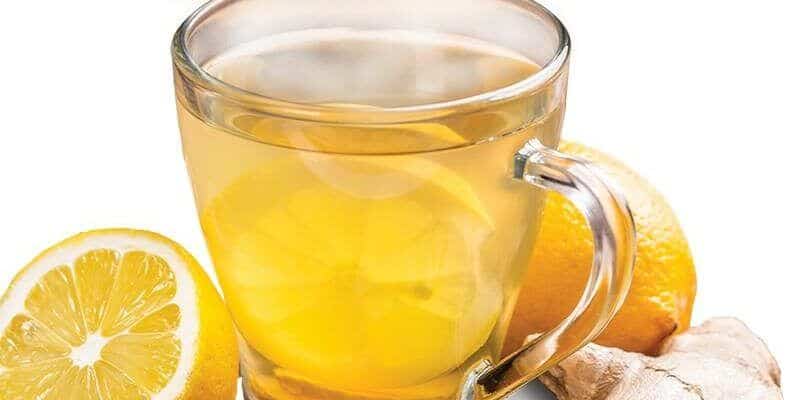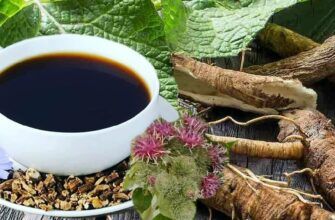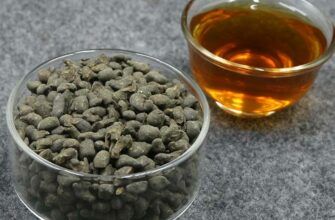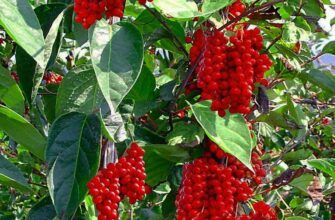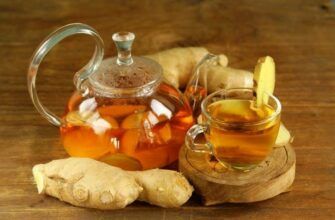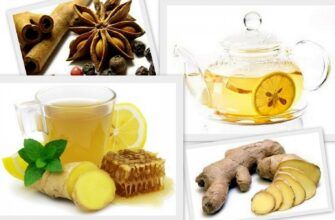Nothing compares to piping hot ginger tea in a cold winter. The high content of vitamin C, magnesium and other minerals makes ginger tea extremely beneficial for health. If you want to mask the distinct taste of ginger, add mint, honey, or lemon to your tea.
Ginger is native to southern China but grows well in warm countries around the world. The pungent and fragrant ginger root has been used in many cultures for culinary and medicinal purposes. Many people use it as a seasoning or eat it with sushi, but tea is also made from ginger. All you need to do to get two servings of fragrant tea is to infuse 1 tablespoon of chopped ginger in half a liter of boiled water.
Ginger tea - medicinal properties
Relieves nausea
Drinking one cup of ginger tea before the road will help to cope with the nausea and vomiting that occurs with motion sickness. You can also drink this tea at the first sign of nausea.
Improves digestion
Improves digestion and digestibility of food, relieves bloating when overeating.
Relieves inflammation
Ginger has anti-inflammatory properties, making it an excellent remedy for relieving joint and muscle pain at home.
Fights respiratory diseases
Ginger tea helps relieve inflammation of the throat during a cold. It is advised to drink a cup of ginger tea to relieve respiratory spasms in respiratory allergic reactions.
Improves blood circulation
Vitamins, minerals and amino acids contained in ginger tea help to restore and improve blood circulation, which helps prevent the occurrence of problems with the cardiovascular system. Ginger prevents the formation of fat deposits on the walls of blood vessels and prevent the occurrence of heart attacks and stroke.
Eases menstrual syndrome
For women, this is an excellent remedy for relieving menstrual syndrome. Soak a towel in warm ginger tea and apply to the lower abdomen. This will help relieve pain and relax the muscles. It is recommended to drink a cup of ginger tea with honey at the same time in a warm compress.
Strengthens the immune system
Ginger tea helps strengthen the immune system due to its high content of antioxidants.
Relieves stress
Thanks to its calming properties and combination of strong aroma and healing properties, ginger tea helps to relieve stress and nervous tension.
How to make ginger tea
To make good ginger tea, you need fresh ginger and purified water. The rest of the ingredients are optional, but adding a little honey or freshly squeezed lemon juice can add a nice touch to the flavor of the tea. Not necessarily, but you can add chamomile flowers, cinnamon, cayenne pepper or echinacea tincture to your tea at your discretion. It is not recommended to add all the ingredients at once, try different combinations.
You will also need a grater or knife, a kettle or pot for boiling water, and a sieve for straining. It is preferable to use a grater, as the root releases a richer flavor. Drink this tea without additives. Ginger is truly a very powerful and blessed herb, be sure to use it and enjoy it!
Ingredients homemade ginger tea (serves 1-2) • 1 tablespoon freshly grated ginger • 2 cups purified water • 1 tablespoon mud or maple syrup • Juice of half a lemon Additional Ingredients: • 1 cinnamon stick • Chamomile flowers • Echinacea tincture • Fresh mint leaves
• A pinch of cayenne pepper
Cooking
Peel the ginger root from the peel and grate. If you cut it, then cut it into thin pieces and take more ginger. If you want to add additional ingredients, add cinnamon, chamomile, or cayenne pepper to the prepared ginger. Boil water and add the ginger or mixture to a pot or teapot, cover and steep for 10 minutes. Add freshly squeezed lemon juice or natural sweeteners to the finished tea.
Happy tea!
If you like iced tea, refrigerate it and add ice cubes before serving.
Ginger tea benefits and harms
It is believed that ginger helps to cope with coughs and other respiratory diseases. Studies have shown that ginger helps reduce high blood pressure and gingerol, the active ingredient in ginger, inhibits tumor growth. Many people who eat ginger in their diet claim that it relieves arthritis pain and muscle pain. Ginger tea is traditionally used for stomach disorders, in particular to prevent nausea.
The question of the benefits of ginger for morning sickness in pregnant women remains controversial. If you are pregnant, about to undergo chemotherapy or surgery, and are experiencing nausea, please consult your healthcare professional before using ginger.
In general, ginger does not have any serious contraindications and side effects. In order for a drink based on this root to bring tangible harm, it must be drunk in very large quantities. To do this, you need to consume more than 4 g of ginger per day - this is the amount from which you get quite a lot of mugs of the drink!
Many claim that ginger has choleretic properties, but there is no scientific evidence for this. But, nevertheless, it is better to consult your doctor before taking tea if you have problems with the gallbladder.
The only very likely side effect of eating ginger would be heartburn or indigestion. It's like eating a chili pepper or a very spicy food. This reaction can be confused with an allergy to ginger. If you experience mouth or stomach discomfort or a rash after drinking ginger tea, it is possible that you are allergic to ginger.
Ginger can lower blood pressure, so some people may experience dizziness.
Ginger also contains salicyates, which are contained in a chemical form in aspirin, and act as anticoagulants. This can lead to problems in people with bleeding disorders. But, again, to achieve such side effects, you need to consume more than 4 g of ginger per day.
Conclusion: too much consumption of anything, even natural, can lead to problems. But if you're in good general health and enjoy the spiciness of ginger tea, feel free to enjoy it.
Read more: